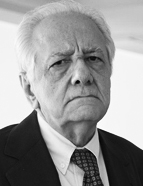

Olinda restaurada , in the eyes of American Brazilianist Stuart Schwartz, would be the first book by a "Pernambuco sextet" related to the colonial period (S. Schwartz, In L.M. Schwarcz, Leituras críticas... [Critical readings], 2008). This collection would be comprised by the following works: Rubro veio - O imaginário da restauração pernambucana [The Pernambuco restoration imaginary] (1986); O nome e o sangue - Uma parábola genealógica no Pernambuco colonial [Name and blood — A genealogical parable in colonial Pernambuco] (1989); A fronda dos mazombos - Nobres contra mascates. Pernambuco, 1666-1715 [The Mazombo Revolt — Nobles versus Merchants Pernambuco, 1666-1715] (from 1995, winner of the José Ermírio de Moraes Prize from the Academia Brasileira de Letras the following year); O negócio do Brasil - Portugal, os Países Baixos e o Nordeste, 1640-1669 (1998); and A outra Independência - o federalismo pernambucano de 1817 a 1824 [The other independence — Pernambuco's federalism from 1817 to 1824] (2004).
Part of this sextet has been compared to Charles Boxer’s trilogy on colonial Brazil, produced in the late 1960s, both for its historical time frame and its focus on the war against the Dutch: "Like Evaldo, Boxer also appreciated narrative style and believed it was possible to accurately reconstruct the past. On the other hand, he was less interested than his colleague in the creation of a historical consciousness, or imaginary, and in the capacity of such a consciousness to influence events and carry political implications" (Idem , p. 15).
French historiography influenced him through essential readings from the Annales and through direct contact with some of its prominent figures in the classroom. In the early 1980s, while serving as Minister Counsellor at the Brazilian Embassy in Paris (1979-1984), he took the opportunity to enhance his research training by enrolling in open courses at the Collège de France, attending classes by Georges Duby and Emmanuel Le Roy Ladurie. From Duby, for instance, he noted that he learned the concept of the imaginary in history (in Três vezes Brasil, op. cit, p. 143). However, Evaldo Cabral de Mello consistently emphasises the importance of English historiography in his own work: "Despite the high quality of contemporary French historiography, we must be cautious of the French tendency toward over-theorising. As an antidote, there's nothing quite like reading a good English historian, like John H. Elliott or Charles Boxer, as the English have an empiricist vocation more closely aligned with the historian's craft. Deep down, whether they admit it or not, historians are nominalists, often reluctant to embrace their nominalism, rather than creators of grand explanatory theories of the past, as is so often expected of them" (E.C. de Mello, in T.C.P. Miranda, Conversas do Recife, em Lisboa [Conversations from Recife, in Lisbon], 1990, p. 142).
This work is financed by national funds through FCT - Foundation for Science and Technology, I.P, in the scope of the projects UIDB/04311/2020 and UIDP/04311/2020.
